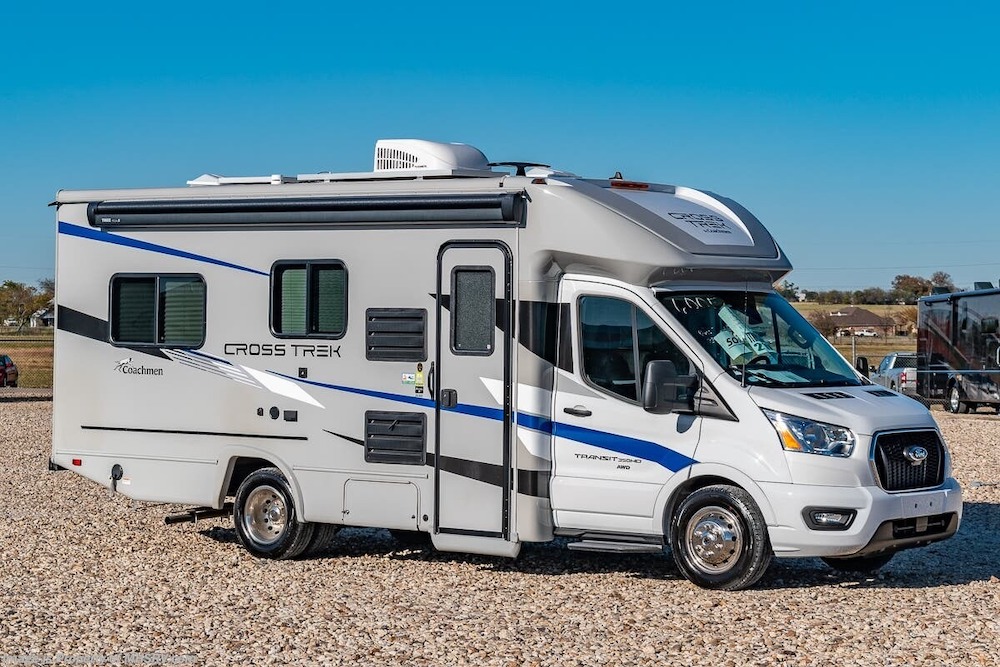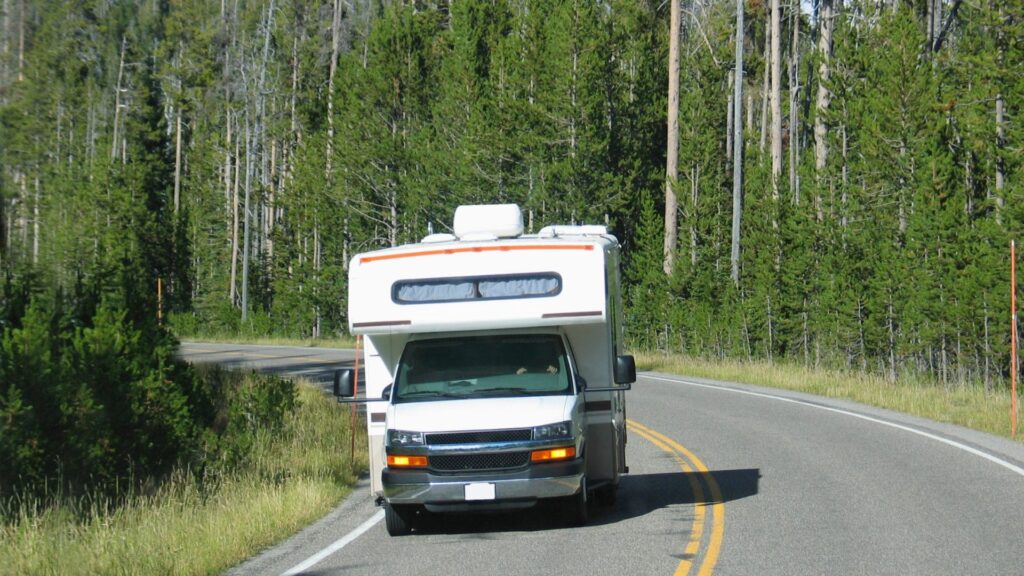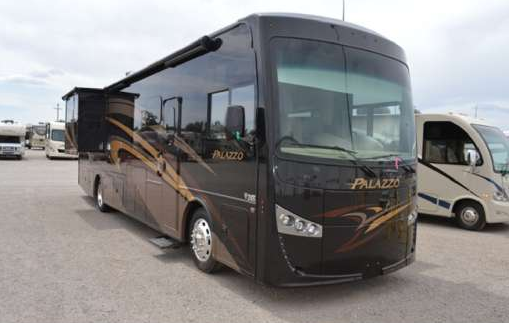Introduction: The Importance of Fuel Efficiency in Motorhomes
Motorhomes, often seen as the epitome of freedom on the road, offer a unique blend of comfort and mobility. However, with the increasing costs of fuel and growing environmental concerns, fuel efficiency has become a paramount consideration for many motorhome enthusiasts. A motorhome’s gas mileage can significantly impact the overall cost of a trip, especially for long-haul journeys. Thus, understanding which motorhome models offer the best gas mileage can be a crucial factor for budget-conscious travelers.
Moreover, as the world becomes more environmentally conscious, there’s a growing emphasis on reducing carbon footprints. Motorhomes, given their size and weight, can be significant consumers of fuel. Therefore, selecting a fuel-efficient model not only saves money but also contributes to a more sustainable and eco-friendly mode of travel.
Most Fuel-Efficient Motorhome Class: Class B Motorhomes
Class B motorhomes, often referred to as camper vans, are built on a van chassis, making them more compact than their larger counterparts. Their smaller size and more aerodynamic design inherently make them more fuel-efficient. These vehicles strike a balance between the luxury of larger RVs and the maneuverability and efficiency of smaller vehicles.
For travelers who prioritize fuel economy, Class B motorhomes emerge as a top choice. They offer the comforts of home, such as sleeping areas, a kitchen, and often a bathroom, all while ensuring that the journey remains as economical as possible. Their design, which emphasizes aerodynamics, further aids in reducing fuel consumption, making them a favorite among eco-conscious travelers.

Factors Affecting Motorhome Mileage
Several factors can influence the fuel efficiency of a motorhome. One of the primary factors is weight. The heavier the motorhome, the more fuel it requires, as the engine has to exert more effort to move the vehicle. This is why it’s essential to be mindful of the weight when adding amenities or packing for a trip.
Another crucial factor is the engine type. Diesel engines, for instance, are generally more fuel-efficient than gasoline engines. However, they can also be more expensive initially. Driving conditions, such as hilly terrains or strong winds, can also impact fuel consumption, as they make the engine work harder. Similarly, driving habits play a role. Habits like speeding, rapid acceleration, and hard braking can reduce fuel efficiency. Lastly, regular maintenance is vital. A well-maintained motorhome will always be more fuel-efficient than a neglected one, emphasizing the importance of routine check-ups and servicing.

Top Motorhomes With Best Mileage
When considering a motorhome purchase, potential buyers often look at the vehicle’s mileage as a primary factor. Among the top performers in fuel efficiency are the Class B models, which, due to their compact size and design, generally offer the best overall mileage. Specific models like the Thor Palazzo 33.5 and Forest River Berkshire 34B stand out in the Class A category, while the RoadTrek Zion shines among Class B RVs.
It’s essential to note that while these models might offer impressive mileage figures, other factors such as the vehicle’s size, weight, engine type, and transmission also play a role in determining its actual fuel efficiency on the road. Therefore, while these models are a great starting point, potential buyers should consider their specific needs and conduct thorough research before making a purchase.
Tips for Improving Motorhome Mileage
Improving the mileage of a motorhome can lead to significant savings in the long run. One of the most straightforward tips is to reduce weight. By removing unnecessary items and only packing essentials, the engine doesn’t have to work as hard, leading to better fuel efficiency. Another vital tip is to regularly check tire pressure. Underinflated tires can reduce mileage, so ensuring they are at the recommended pressure is crucial.
Maintaining the motorhome in good condition through regular maintenance can also lead to improved mileage. This includes routine tasks like oil changes, air filter replacements, and tire rotations. Driving habits play a significant role as well. Avoiding rapid acceleration, hard braking, and maintaining a steady pace can enhance fuel efficiency. Additionally, using tools like cruise control can help maintain a consistent speed, further improving mileage.

Historical Perspective: Evolution of Motorhome Fuel Efficiency
Over the decades, motorhomes have undergone significant transformations, not just in terms of amenities and design but also in fuel efficiency. In the early days, motorhomes were primarily built for comfort and space, with little consideration for fuel economy. Gas was relatively cheap, and the emphasis was on creating a home-like experience on wheels. However, as fuel prices began to rise and environmental concerns took center stage, the motorhome industry started to prioritize fuel efficiency.
Technological advancements played a pivotal role in this shift. From the introduction of more fuel-efficient engines to aerodynamic designs and lightweight construction materials, motorhomes began to evolve. Today’s models are a testament to years of research and innovation, offering travelers the luxury they seek without the hefty fuel costs of yesteryears.
Environmental Impact: The Green Side of Fuel-Efficient Motorhomes
The environmental impact of vehicles is a growing concern, and motorhomes are no exception. Given their size, motorhomes have the potential to consume a significant amount of fuel, leading to higher carbon emissions. By opting for fuel-efficient models, travelers can reduce their carbon footprint, making their journeys more eco-friendly. Every gallon of gasoline burned emits about 20 pounds of carbon dioxide, so the savings in terms of emissions can be substantial over long trips.
Moreover, the motorhome industry is also recognizing the importance of sustainability. Many manufacturers are now incorporating green technologies, such as solar panels and energy-efficient appliances, into their designs. These not only reduce the reliance on fossil fuels but also promote a more sustainable and responsible form of travel. As the world moves towards greener solutions, fuel-efficient motorhomes are a step in the right direction.
Cost Analysis: The Economic Benefits of Fuel-Efficient Motorhomes
Fuel is one of the most significant recurring expenses for motorhome owners. Over the lifespan of a motorhome, the difference in fuel costs between a fuel-efficient model and a gas-guzzler can amount to thousands of dollars. For frequent travelers, investing in a fuel-efficient motorhome can lead to substantial savings in the long run. It’s not just about the cost per gallon; it’s about how those costs accumulate over miles and years of travel.
Additionally, there are other economic benefits to consider. Fuel-efficient motorhomes often have a higher resale value, as they are more attractive to potential buyers concerned about fuel costs. Furthermore, as countries implement stricter emission standards and regulations, less efficient models might face higher taxes or restrictions, making fuel-efficient motorhomes a more economically sound investment for the future.
Alternative Fuel Motorhomes: The Future of Eco-Friendly Travel
The automotive industry is rapidly moving towards alternative fuels, and the motorhome sector is catching up. While traditional gasoline and diesel engines still dominate the market, there’s a growing interest in motorhomes powered by alternative fuels like electricity, hydrogen, and biofuels. These alternative fuel motorhomes offer the promise of reduced emissions, making them an attractive option for environmentally-conscious travelers.
Electric motorhomes, for instance, produce zero emissions at the tailpipe and can be charged using renewable energy sources like solar or wind. Hydrogen fuel cells, on the other hand, emit only water vapor, presenting another clean alternative. Biofuels, derived from organic materials, can also reduce the carbon footprint of motorhomes. As technology advances and these alternative fuels become more accessible, they might reshape the future of motorhome travel, offering a blend of luxury and sustainability.
Technological Advancements: Driving Motorhome Fuel Efficiency Forward
Technology has been at the forefront of improving motorhome fuel efficiency. From advanced engine designs to lightweight construction materials, technological innovations have significantly enhanced the mileage motorhomes can achieve. Modern engines, whether diesel or gasoline, are designed to optimize fuel combustion, reducing wastage and improving efficiency. Turbochargers, direct fuel injection, and advanced transmission systems further enhance this efficiency.
Additionally, technology plays a role outside the engine as well. Aerodynamic designs, inspired by advancements in aviation and automotive sectors, reduce drag, allowing motorhomes to move more smoothly and consume less fuel. Smart systems that monitor tire pressure, engine performance, and driving habits provide real-time feedback to drivers, helping them make adjustments that can lead to better fuel economy. As technology continues to evolve, it will undoubtedly play a pivotal role in shaping the future of motorhome travel, making it more efficient and eco-friendly.
Conclusion
Motorhomes, emblematic of freedom and adventure, have long been a favorite for those seeking the open road. However, in our modern era, where environmental concerns and economic considerations are paramount, the importance of fuel efficiency in these vehicles cannot be overstated. As we’ve explored, the journey of motorhomes from gas-guzzling giants to models of fuel efficiency has been marked by technological innovations, a shift in consumer priorities, and a broader global move towards sustainability.
For potential buyers and motorhome enthusiasts, the message is clear: the choices made today have long-term implications. Whether it’s the immediate impact on the wallet or the broader impact on the environment, fuel efficiency is a critical consideration. As the industry continues to innovate and offer more eco-friendly options, travelers can look forward to adventures that are not only memorable but also sustainable. In the grand tapestry of motorhome travel, fuel efficiency is not just a chapter; it’s a narrative of progress, responsibility, and the promise of a greener tomorrow.



